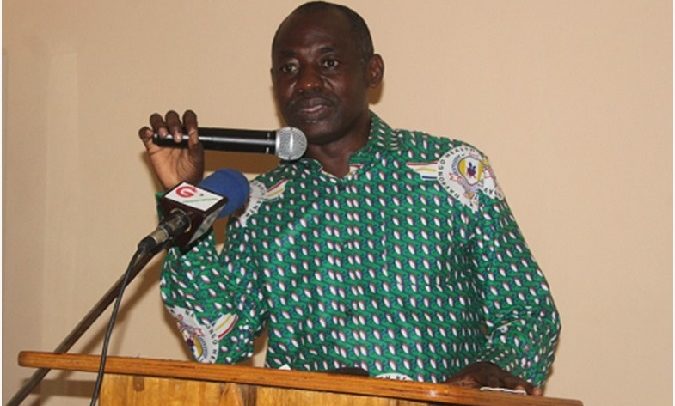Dr. Patrick OdumAnsah
The Navrongo Health Research Centre (NHRC) in the Upper East Region, has touted the significant contribution it made to the development of the first-ever malaria vaccine (RTS,S) for children.
Acting Director of the centre, Dr. Patrick OdumAnsah said the Clinical Research Department participated in many of the processes that resulted in the development of the vaccine that acts against P. falciparum, the most deadly malaria parasite globally, and the most prevalent in Africa.
Explaining the role of the centre, Dr.Ansah said out of about 40,000 children needed for the pilot study,Ghana recruited half of the number while the other half was shared between Kenya and Malawi.
“NHRC recruited 8,000 children,” he said, adding that none of the 20,000 children given the malaria vaccine in the country and followed-up with had developed any serious adverse effect due to the vaccine.
Dr. Ansah, further noted that the data on the vaccine from Ghana helped the developers of the malaria vaccine and World Health Organisation (WHO) to arrive at the conclusion that the vaccine was safe, efficacious and tolerable in children.
“The vaccine is very safe. It will reduce the number of children who die early,” he said.
He made the assertion when a team of health journalists from the African Media and Malaria Research Network (AMMREN) visited the NHRC.
According to him, the NHRC and Kintampo Health Research Center (KHRC) have been selected to take part in the phase 4 assessment of the RTS,S vaccine development after the prequalification of the vaccine by the WHO due to their strong demographic surveillance system.
Dr. Ansah pointed out that currently, over 20, 000 children in the country were under surveillance for the malaria vaccine.
He disclosed that all the children vaccinated with the RTS,S would be monitored for five years, explaining, “the data so far collected together with other studies already shows that the vaccine has been safe and effective and its deployment is feasible in Sub-Saharan Africa.”
He encouraged the public to report side effects from taking vaccines, noting that it would help vaccine developers gather more information to enhance its safety.
“We need to get to a stage where naturally, when a new drug or vaccine is introduced into the system; anybody that will develop a problem can report it and be put on the Food and Drugs Authority’s platform,” Dr. Ansah stated.
By Jamila Akweley Okertchiri

